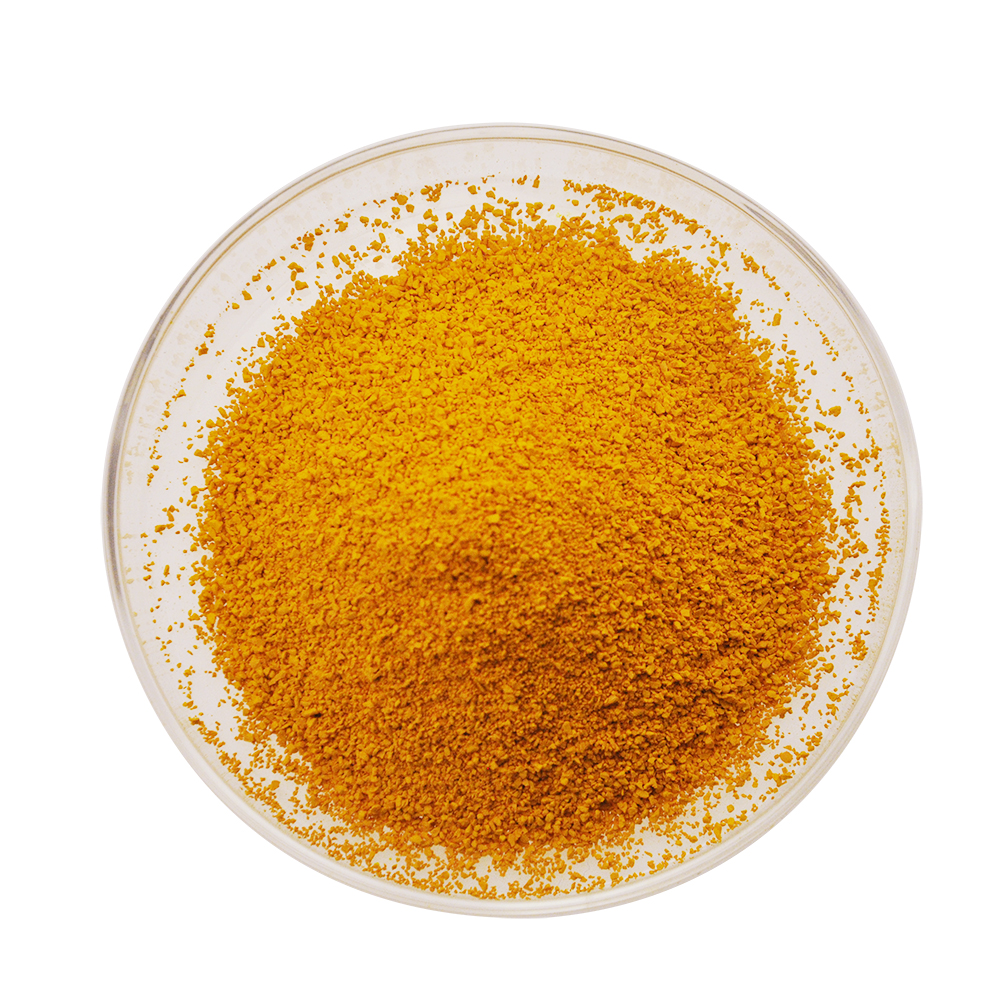Tumeric Root Extract Curcumin 95% Curcuminoids USP Standard
Turmeric Extract Curcumin Introduction
Turmeric has been used by humans for more than 4,000 years. It belongs to the ginger family and is the source of the yellow color found in curries. Turmeric was used in ancient Indian and Chinese medicine to treat inflammatory diseases, protect liver, skin diseases and wounds, was known as Herbal Aspirin by local people. Turmeric Extract also known as Curcuma Longa Extract is an extract powder from dry herb root Curcuma longa L. with ethanol extraction, concentration, purification, separation and other processes, it contains NLT 95% Curcuminoids as the sum of curcumin, desmethoxycurcumin, and bisdesmethoxycurcumin. It contains NLT 70.0% and NMT 80.0% of curcumin, NLT 15.0% and NMT 25.0% of desmethoxycurcumin, and NLT 2.5% and NMT 6.5% of bisdesmethoxycurcumin based on USP standard. It’s an orange crystalline powder with a slightly bitter taste. Insoluble in water. It’s a regular food additives as natural colorant in food application, and a good anti-inflamation ingredient in health products application.
Turmeric Extract Mainly Specifications
① Turmeric Root Powder
② Curcumin 95% HPLC
③ Curcuminoids 95% HPLC
④ Water soluble curcumin 10% HPLC
⑤ Curcumin oleoresin
⑥ Feed grade Curcumin 10% HPLC
Benefits of Turmeric Extract Curcumin
❶ Turmeric Extract Curcumin is a powerful antioxidant,capacity proved to similar to vitamin E and vitamin C.
❷ Turmeric Extract Curcumin exhibits anti-inflammatory properties by inhibiting proinflammatory factors.
❸ Turmeric Extract Curcuminoids were used as natural food additives for yellow color pigment.
❹ The proinflammatory factor in curcumin protects the liver and gall damage, such as anti-hangover.
Typical Specification Sheet of Curcumin 95%
| Analysis Items | Specifications | Methods | |
| Active Ingredients Tests | |||
| Curcuminoids (HPLC) | ≥95.00% | USP43<621> | |
| Curcumin (HPLC) | 70%-80% | USP43<621> | |
| Desmethoxycurcumin (HPLC) | 15%-25% | USP43<621> | |
| Bisdesmethoxycurcumin (HPLC) | 2.5%-6.5% | USP43<621> | |
| Identifications | |||
|
|
Sample exhibits major bands similar in position and color to standard solution. | ||
|
|
Retention time of the sample matches with the standard in HPLC purity test. | ||
| Physical Tests | |||
| Appearance | Yellow to orange fine powder | Visual | |
| Odor | Characteristic | Organoleptic | |
| Taste | Characteristic | Organoleptic | |
| Particle size | 98% pass 80mesh | USP43<786> | |
| Loss on drying | ≤2.00% | USP43<731> | |
| Residue on Ignition | ≤1.00% | USP43<281> | |
| Chemical Tests | |||
| Heavy Metals | ≤10.00ppm | USP43<231> | |
| Pb<Lead> | ≤3.00ppm | USP43<211> | |
| As<Inorganic arsenic> | ≤2.00ppm | USP43<251> | |
| Cd<Cadmium> | ≤1.00ppm | USP43<232> | |
| Hg<Mercury> | ≤0.10ppm | USP43<261> | |
| Residual Solvents | USP<565> | USP43<565> | |
| Pesticide Residues | USP<561> | USP43<561> | |
| Microbiological Tests | |||
| Total Bacterial Counts | ≤10,000cfu/g | USP43<2021> | |
| Yeasts and Molds | ≤1,000cfu/g | USP43<2021> | |
| E. Coli | Negative in 1g | USP43<2022> | |
| Salmonella | Negative in 10g | USP43<2022> | |
Application Cases
